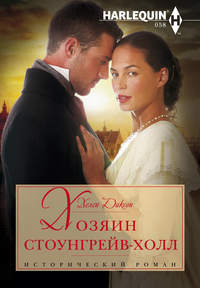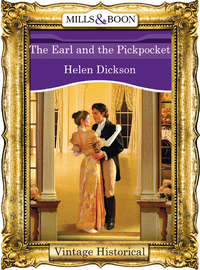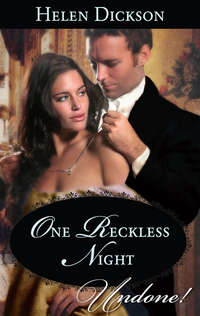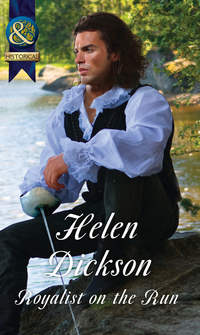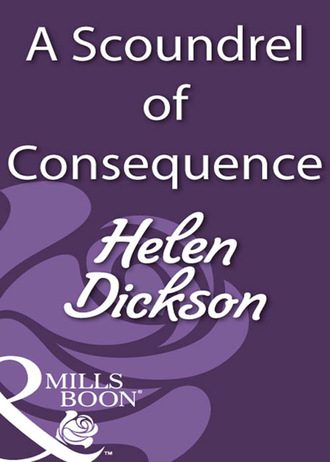
Полная версия
A Scoundrel Of Consequence
‘And are you successful in your fund raising?’
‘Sometimes. You see, I make it my business to know the names of wealthy people I can approach for monetary contributions.’ She smiled when she saw his eyes register surprise. ‘You must think me terribly mercenary to go around trying to extract money from people like I do, but it’s because I care for the children.’
‘You are so hungry for their money?’
‘Oh, yes—and I am not ashamed to say so.’
‘Just remember that greed is a terrible thing, Miss Greenwood.’
Cassandra started at his statement, her gaze darting to his enigmatic dark blue eyes. ‘Please don’t look at me like that, Captain Lampard. I’m not greedy—at least not for myself. Only for the children. Money means nothing to me, but you have to agree that it is a useful commodity, and a few pennies can be the means of life or death to a starving child.’
‘Maybe so, but for a young lady to tout for money by herself is highly irregular I would have thought. It is also a dangerous game you play.’
‘Nothing is only a game, Captain Lampard.’ The sparkle was gone, leaving only a frosted blue in Cassandra Greenwood’s eyes. ‘To many people, the notion of becoming allied with a woman in such a way is so extraordinary as to be laughable—and distasteful when they realise I am indeed serious.’
‘Do you not think you should take what God sends you and be thankful?’
His words were so glib and offhand that Cassandra gave him a rueful stare. ‘Try telling that to the children. You look surprised by what I do, Captain.’
‘Surprised, yes—and appalled to a certain extent. You are an attractive young woman, and why your family has allowed you to become involved in this unusual and somewhat dangerous enterprise, I cannot imagine.’
‘My work at the institute is often hard and intense and keeps me away from home for long periods, but I take pride in what my father began and in my work and what I achieve—that the children who come here go away with full bellies and, if they’re lucky, a pair of boots, even though I know that in all probability they will sell them for a few pennies when they are back on the streets. A great many of them are orphans, others are unwanted, having been turned out by parents who have too many mouths to feed already, and others have been sold to chimneysweeps and the like for a few shillings. The children who come to us have nothing—and very little hope. Someone has to watch over them.’
‘And you think you can make a difference to their lives?’
‘A few of them, yes.’
‘There are always the workhouses—and the charity schools—and the hospital for those who are injured.’
‘The workhouses are appalling places, but better than living on the streets, I do agree, but they don’t house all the children and the hospitals exclude children under the age of seven—except for those who require amputations.’ Her lips curved in a wry smile. ‘How sad is that? Are you aware that out of all the people in London who die, almost half of them are children?’
‘No, I was not aware of that,’ William replied stiffly, never having thought of it since this was the first time he’d had contact with anything to do with destitute children. He scowled. Cassandra Greenwood had an irritating tendency to prick his conscience and to make him feel inadequate in some way, which he was beginning to find most unpleasant.
Having finished her task, Cassandra looked him straight in the eye. ‘I’m not proud, sir, just determined to carry out what my father started, and if you can find fault with that then I am sorry for you.’
‘No, Miss Greenwood, I can find no fault with that. You speak brave words. Such sentiments are highly commendable and admirable to say the least.’ Swinging his long legs on to the floor and standing up, he was relieved that the last vestiges of haziness had left his mind.
Cassandra’s breath caught in her throat, for the lean frame unfolded until the man stood a full head and shoulders taller than herself. Assisting him into his ruined jacket, collecting the soiled dressing and instruments Dr Brookes had used, she moved away from him.
As she busied herself with the task at hand, William watched her, his eyes roving approvingly over her lithe figure, stopping at the swelling breasts beneath the restricting fabric, then straying back to the shock of honey-gold hair. His fingers ached to release it from its strictures, to run them through the luxuriant softness and kiss the shaded hollow in her throat where a small brooch was pinned to the neck of her dress. He studied her stance and the language of her slender form. Despite his experience with the opposite sex, he wasn’t familiar with women of her class. He’d made a point not to be, but this one made him curious.
All of a sudden warning bells sounded in his mind with such unexpected force that he knew he had to get out of that place, to dispel the unwelcome, unpleasant thoughts as he tried to understand what it was that made an attractive woman like Cassandra Greenwood want to waste her life in this sorry establishment for underprivileged children.
He was a shrewd and rational man, a man of breeding and style who understood his motivations and knew his goals. He prided himself on his good sense not to be swayed by emotion or flights of fancy, so it came as a shock that he wanted to know more about Miss Greenwood—and that was the moment he realised what was happening. He—the ruthless and heartless Lord William Lampard, Earl of Carlow in Hertfordshire, with a distinguished army career, who kept London alive with gossip and scandal when he was in town—was afraid of the effect that this place and Cassandra Greenwood was having on him.
‘Tell me, is there no board of trustees you are answerable to?’
Cassandra stopped what she was doing and turned her blue-green eyes on his with a candid air. ‘Trustees? Oh, yes. There are four on the board—Dr Brooks and a colleague of his at St Bartholomew’s, my mother and me.’
‘I see. I was beginning to think you were your own woman, Miss Greenwood.’
‘I am, in every other way, answerable to no one. Very much so.’
‘And there is no prospective husband in the offing?’
‘No. I like my freedom and independence—which is something a husband isn’t likely to give me.’
‘That depends on the husband. No doubt, given time, things will change.’
When Cassandra met his gaze she experienced a shock of something between recognition and a kind of thrilling fear. Those eyes, deep blue and narrowed by a knowing, intrusive smile, seemed to look right past her face and into her self. For that split second she felt completely exposed and vulnerable—traits unfamiliar to her, traits she did not like.
‘Not if I have my way, Captain Lampard. And I always do.’
‘I can see that. However, I am not here because I want to be convinced of the merits of children’s charities. I am here because I was shot and in no condition to object—although I do thank you for all you and Dr Brookes have done.’
‘Don’t you like children, Captain Lampard?’ she asked suddenly.
‘It’s not a case of not liking them. I’ve never had anything to do with them.’
William became thoughtful and a heavy frown creased his brow. It was an expression those who knew him well would recognise, for it indicated his interest. His curiosity was aroused. Cassandra Greenwood was a woman who lived and breathed her cause and he did not know how he knew, but he knew he was looking at that rare individual who would tell the whole world to go to blazes should it get in her way.
As the initial shock of his assault by an unknown assailant began to wear off, an instinct, a built-in awareness that thrived inside the soldier in him and was essential if one was to survive, told him that here was the dedication, ambition, determination and a sense of purpose of one who meant to succeed. There was an air about her, in the set of her chin and the firmness of her lips, a resolve so obstinate and positive that he found if difficult to restrain himself from showing the same enthusiasm as she did.
Donning his hat, he turned from her, his gaze resting for a brief moment on the child. He seemed to hesitate before coming to a decision. Looking back at her, he said, ‘The boy—Archie. When he is recovered, send him to my house in Grosvenor Square. I’ll have a word with Thomas, my head groom. If the lad likes horses, Thomas might very well set him on in the stables. I’m sure we can find him something to do that will keep him off the streets. I shall also make sure you are repaid for your kindness.’
‘Thank you,’ she said, her expression registering surprise as he moved towards the door. ‘It would be much appreciated,’—but he must not have heard her words, for he did not turn to look at her again. Unable to believe he had offered to provide Archie with work and a home, she stood staring at the door through which he had disappeared for several moments. Just when she was beginning to believe that every scandalous thing she had heard about him was true, he had to do something nice.
It would appear Captain Lampard had hidden depths. By offering to provide Archie with work and a home, he had exposed one redeeming feature to her. Was it possible that the renowned rake had returned to England a reformed character?
As William sat in Miss Greenwood’s carriage taking him to Grosvenor Square, his horse tethered to the back, he tried to define what had been so attractive about her. She certainly wasn’t plain. Her real physical confidence was sensual and there had been an assured innocent vanity in her smile. He smiled to himself, remembering it, but then a more pressing matter entered his thoughts and he became preoccupied with discovering the identity of whoever it was who had tried to end his life. A cold, hard core of fury was growing inside him, shattering every other emotion he’d ever felt, leaving him incapable of feeling anything other than the need to find the person responsible.
Cassandra, her mother and her eighteen-year-old sister Emma lived in a house of modest proportions in Kensington compared with Aunt Elizabeth’s grand residence in Mayfair. Cassandra’s parents had been well matched in character, but they came from different backgrounds. The Greenwood family belonged to the entrepreneurial and professional classes. Her mother was of the landed gentry with aristocratic connections. What Cassandra’s parents did have in common was that they came from the poorer branches of their respective families. Neither of them had a private fortune.
Deeply concerned with the sorry plight of the City’s destitute children, James Greenwood had opened the small institute in Soho. Since his death three years earlier, Cassandra and her mother had struggled to keep it open. They were constantly short of funds. Dr Brookes, who had been Dr Greenwood’s close friend and associate, generously gave up his time to tend the seriously ill or injured children who came to them, and raised funds on their behalf.
Bereft after the death of her beloved husband, Harriet Greenwood, not content to lead a quiet life, had become involved in the running of the institute and was willing to allow her eldest daughter to work alongside her, even though twenty-year-old Cassandra’s break from convention shocked friends and acquaintances and brought severe disparagement. But Cassandra, undeterred, refused to allow a lot of small-minded, ignorant people to take from her all that she and her mother were trying to accomplish.
Harriet’s cousin Lady Elizabeth Monkton, a widow, childless and a wealthy and extremely popular socialite, had taken both girls under her wing when James had died and done her utmost to guide them in the way she thought was best for them. Eager to give them each a Season, she had been disappointed when Cassandra, who had her own ideas and quietly despised the useless frivolity of the social scene, had declined her offer—although she was not opposed to using Lady Elizabeth’s position to her advantage. In her own subtle and charming way, Cassandra was successful at coaxing money out of the well-to-do at the balls and parties she attended.
Tonight, Aunt Elizabeth—as she liked to be known to Harriet’s girls—was to give a ball to mark her fiftieth birthday. Cassandra was to attend and, as a special concession, Emma, too, despite not having made her curtsy. They were at Monkton House, getting ready for the ball, and Emma was irritatingly out of sorts—one of the reasons being that she had earlier received a severe scolding from her mother for going riding in the rain and arriving back at the house soaked to the skin.
‘It isn’t fair,’ Emma wailed, pouting petulantly, bemoaning the fact that Edward Lampard, the young man she was enamoured with, would not be at the ball. Ever since he had left London three weeks ago she had been restive and impatient for him to return. Flopping into a chair beside her sister seated at the dressing table as she put the finishing touches to her toilette, she scowled her displeasure.
‘Please stop it, Emma. No good can come of your seeing that particular gentleman and I’m tired of discussing it. I’ve told you before that young man is a scoundrel in the making and will not be content until he’s compromised you so completely that your reputation will be beyond redemption. Then no gentleman of worth will want you,’ she finished severely.
Emma was stricken as she stared at the sister she loved and admired more than anyone else, whose strength and force of character were so much greater than her own. ‘Scoundrel?’ she protested heatedly, two high spots of colour burning on her cheeks. ‘How can you possibly know that?’
‘Because he happens to be the cousin of that renowned rake Captain William Lampard—a man with a string of broken hearts and shattered marital aspirations that would make any level-headed young woman steer well clear of him.’
‘That’s an awful thing to say, Cassy,’ Emma retorted indignantly. ‘Just because his cousin’s a renowned libertine of the first order does not mean to say that Edward will follow suit. He is a decent, upright and honourable man—a gentleman.’ There was a look of acute dismay in her eyes. She was bewildered by pain and confusion—anxious for Cassandra’s approval and agonisingly aware that she did not understand her sister’s antagonistic behaviour. ‘He loves me and values what I think and feel—and raises me above all other considerations.’
‘Well, with all these attributes he must be quite unique,’ Cassandra said drily, unconvinced by her sister’s defence of Edward Lampard. ‘But he should not be saying these things to you, and to respond to a gentleman’s attentions before his intentions are known is to risk the ridicule of others. I do wish you would behave with more propriety, Emma.’
‘Really, Cassy, considering your limited experience, I need no instructions from you on how to behave in society.’
‘It’s not society that concerns me and you know it. I worry that this preoccupation you have with Edward Lampard will frighten away all the eligible young men before you come out—which Aunt Elizabeth seems set upon—although why she allows you to go out in company so much when you have not yet made your curtsy is quite beyond me.’
Emma stared at her. Their ability to communicate was truly broken down. ‘Really, Cassy, what man could be more eligible than Edward?’
‘I’m only trying to warn you of the dangers of you showing favour to any one man before your début, and you must not allow yourself to be alone with him.’
‘Kindly keep your warnings to yourself. I am quite capable of taking care of myself.’
‘How do you know he isn’t merely toying with you, Emma?’
‘Because he cares for me. Anyone would think you’re jealous because you’ve failed to arouse any man’s passions yourself,’ Emma uttered petulantly.
‘Passions? My dear Emma, I sincerely hope Edward Lampard keeps his passions under control when he is with you.’
‘Cassy, will you please listen to me? I am in love. Really in love.’
‘You think you are. Whatever the sentiments that young man has created, I have no doubt that in time the true nature of his character will be revealed. Now please go and get ready before Aunt Elizabeth comes looking for us.’
‘You go to the ball, I don’t feel like it,’ Emma snapped petulantly.
Cassandra sighed and looked at her sister. Bold, open and loving, full of confidence and life, her green eyes set off by the lustrous gold of her hair, her nose pert and cute and her lips soft and full, at just eighteen years of age Emma had attended few social events. As a rule she looked forward to them and enjoyed them, always wearing her best gown and preening in front of the mirror like a bird of paradise determined on a grand display. Cassandra had thought tonight would be no exception, but she was wrong.
Emma had known Sir Edward Lampard for several weeks, meeting him at the odd soirée and the theatre, visiting neighbouring friends with Aunt Elizabeth in the mornings, and on outings in the park. Cassandra was not unaware that friendship of a certain kind was beginning to grow between them. At first she had considered it to be nothing more than youthful attraction, but Mr Lampard was persistent and always sought Emma’s company, which, fearing he was intent on compromising her vulnerable and naïve sister, gave Cassandra cause for concern—particularly since he was closely related to the notorious scoundrel Captain Lampard—the man who had promised her a donation for the institute and had apparently reneged on his word. Now the thought of Emma having anything to do with that family did not sit easy.
‘You’re mean, Cassy.’ Emma pouted. ‘I don’t know why you always have to say hateful things about Edward. You’re spiteful.’
‘No, I’m not. I’m just being realistic.’
Emma sulked for a moment longer, but, realising a fine pout would not sway her sister, she changed her tactics. ‘Very well, I’ll go and get ready. Perhaps his cousin, Captain Lampard, will tell me when Edward is to return.’
Cassandra swung round. ‘Captain Lampard? He’s coming here tonight?’
‘I believe so. I know Aunt Elizabeth invited him.’ Emma got up and, gathering up her skirts, flounced to the door. Ignoring her sister’s perplexed frown, she rushed on. ‘As well as being a magnificent combat officer, a man without fear and already a veteran of at least two campaigns—which Edward proudly told me about—he’s extremely handsome, too, by all accounts. I’ve never seen him myself, but all the ladies positively drool over him.’ She was the epitome of angelic goodness now her tirade was spent. With a delicious giggle she kicked the hem of her gown and opened the door.
‘Emma, wait.’ Getting up, Cassandra crossed to her sister. ‘I want to be at the institute early tomorrow, so I don’t intend being late to bed. I don’t think you should be late, either.’
‘I won’t be, and I know you need your rest to pander to all those uncivilised children and to scrub the floors.’ Perceiving that her thrust had hit its mark, Emma turned away.
Bruised by Emma’s manner, the thoughtless insults cutting her to the quick, Cassandra drew a long breath, striving to get control of her temper. When she spoke again she was more composed and put her hand on her sister’s arm.
‘Please don’t be angry, Emma. I’m sorry if I sounded harsh. Edward is handsome enough, I suppose, and I can understand why you are attracted to him. Such infatuations are common, but you are just eighteen and he is what—nineteen? You are an attractive and intelligent girl. Have you absolutely no idea of the harm this will do to your reputation? The way you have behaved with Edward Lampard is not a desirable mode of behaviour, and I know how much it upsets Mama.’
Cassandra’s mention of their beloved mama made Emma look contrite. Their mother was a hard-working woman who doted on her daughters. ‘I don’t mean to upset her, truly. I know she desires me to be more like you—to take an interest in the institute that was so dear to Papa’s heart—but I can’t. It’s just not in my nature.’
‘I know, Emma, and it doesn’t matter. I enjoy what I do; if I didn’t, I couldn’t do it, so I don’t blame you. Only I do wish you’d listen to me when I attempt to advise you. I do have your best interests at heart, you know. Now go and get ready.’
On a sigh she watched Emma go out. She could only hope that, beneath her indignation, Emma had sufficient common sense to heed her words.
Escorted by Aunt Elizabeth, when Cassandra and Emma entered the large, mirrored ballroom with French windows leading out on to balconies, it was already congested with over two hundred of the ton’s most illustrious and sophisticated personages. Dancing was in progress, with ladies dipping and swaying, talking and laughing with their partners. Around the room were enormous bouquets of flowers and the immense chandeliers, dripping with sparkling crystals, reflected the dazzling kaleidoscope of colourful gowns and jewels.
Lady Monkton, a widow of ten years and one of society’s most respected and influential ladies, was standing behind her charges like a protective mother hen, her chest puffed out, her back ramrod straight, her eyes proudly resting on her lovely girls.
There was little opportunity for the chaperons to relax and enjoy themselves at a ball, for they felt compelled to keep an eye on their charges at all times—to know who they were dancing with, and who they were dancing with too often.
Cassandra paused to casually overlook the throng to see who was present. Full purses would be plentiful. She never openly asked anyone for money—that would never do—but there were several here who were sympathetic to her cause and subscribed on a regular basis. She observed that Lord and Lady Ross were present. They were extremely wealthy, and Lady Faversham’s husband was an influential London property owner who had frequently made generous donations to the institute in the past. Cassandra glanced at Emma when she gasped.
‘Oh, look, Cassandra,’ she remarked excitedly. ‘It’s Edward—over there. I had no idea he was back in London—and see, he’s coming this way.’
Dismayed, Cassandra saw that the young man in question was indeed wending his way towards them, his blond hair falling attractively over his forehead and a smile on his lips. She saw the pleasure that lit up his youthful face, warming him with astonishing intensity.
She sighed, defeated. ‘So he is, Emma. I do so hope he is not going to be persistent and that you do not forget how to behave—and it is undignified, as well as unattractive, to stand with one’s mouth open,’ she chided, leaving her sister in Aunt Elizabeth’s charge and strolling to the edge of the crowded dance floor to accost and charm anyone she thought would benefit her cause.
Alluring, fiery, and with an unshakeable sense of her own worth, Cassandra was bright and unpredictable—often playful and engaging, just as often frostily aloof. She drew men to her side almost without benefit of conscious effort. But those who fell victim to her potent magnetism soon learned to their cost that the fascinating Miss Cassandra Greenwood, while accepting their masculine admiration as both her right and her pleasure, kept herself beyond their reach.
An uncertain future loomed ahead of her, this she knew, but she was going to meet it squarely in the eye. She would not be looked over like ripe fruit on a costermonger’s stall. There would be no inept youth with groping hands and wet kisses for her but a man, someone to love her with all the masculine authority at his command—experienced, bold and dashing—like Captain Lampard perhaps? She was shocked and instantly ashamed of the way her mind was working. Captain Lampard was totally unsuitable in every way and it was a ridiculous thought which she dismissed at once—but she could not deny it.
Chapter Two
Since his return to London and conscious that someone was trying to kill him—the reason why still eluded him—William had lost interest in society events. When the invitation to Lady Monkton’s birthday ball had arrived he’d given it a cursory glance and was tempted to instruct his secretary to send a polite refusal, despite any social occasion at Monkton House reputed as being exceptional. It was Edward, having returned to London from visiting friends in the country, who’d persuaded him to attend. In fact, young Edward seemed to be in an exuberant mood of late and William was curious as to the reason for it—a young lady, perhaps?


